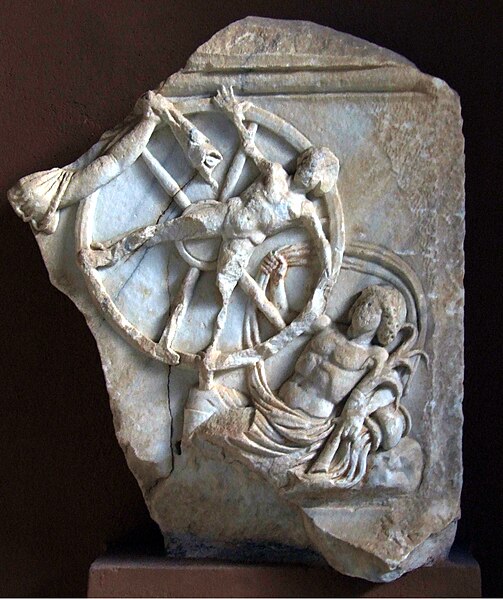Epicurus was an ancient Greek philosopher and sage who founded Epicureanism, a highly influential school of philosophy. He was born on the Greek island of Samos to Athenian parents. Influenced by Democritus, Aristippus, Pyrrho, and possibly the Cynics, he turned against the Platonism of his day and established his own school, known as "the Garden", in Athens. Epicurus and his followers were known for eating simple meals and discussing a wide range of philosophical subjects. He openly allowed women and slaves to join the school as a matter of policy. Of the over 300 works said to have been written by Epicurus about various subjects, the vast majority have been destroyed. Only three letters written by him—the letters to Menoeceus, Pythocles, and Herodotus—and two collections of quotes—the Principal Doctrines and the Vatican Sayings—have survived intact, along with a few fragments of his other writings. As a result of his work's destruction, most knowledge about his philosophy is due to later authors, particularly the biographer Diogenes Laërtius, the Epicurean Roman poet Lucretius and the Epicurean philosopher Philodemus, as well as the hostile but largely accurate accounts by the Pyrrhonist philosopher Sextus Empiricus, and the Academic Skeptic and statesman Cicero.

Roman marble bust of Epicurus
Reconstruction by K. Fittschen of an Epicurus enthroned statue, presumably set up after his death. University of Göttingen, Abgußsammlung.
Illustration from 1885 of a small bronze bust of Epicurus from Herculaneum. Three Epicurus bronze busts were recovered from the Villa of the Papyri, as well as text fragments.
Marble relief from the first or second century showing the mythical transgressor Ixion being tortured on a spinning fiery wheel in Tartarus. Epicurus taught that stories of such punishment in the afterlife are ridiculous superstitions and that believing in them prevents people from attaining ataraxia.
Ancient Greek philosophy arose in the 6th century BC. Philosophy was used to make sense of the world using reason. It dealt with a wide variety of subjects, including astronomy, epistemology, mathematics, political philosophy, ethics, metaphysics, ontology, logic, biology, rhetoric and aesthetics. Greek philosophy continued throughout the Hellenistic period and later evolved into Roman philosophy.
Four Greek philosophers: Socrates, Antisthenes, Chrysippos, Epicurus; British Museum
The philosopher Pyrrho of Elis, in an anecdote taken from Sextus Empiricus' Outlines of Pyrrhonism (upper) PIRRHO • HELIENSIS • PLISTARCHI • FILIVS translation (from Latin): Pyrrho • Greek • Son of Plistarchus (middle) OPORTERE • SAPIENTEM HANC ILLIVS IMITARI SECVRITATEM translation (from Latin): It is right wisdom then that all imitate this security (Pyrrho pointing at a peaceful pig munching his food) (lower) Whoever wants to apply the real wisdom, shall not mind






